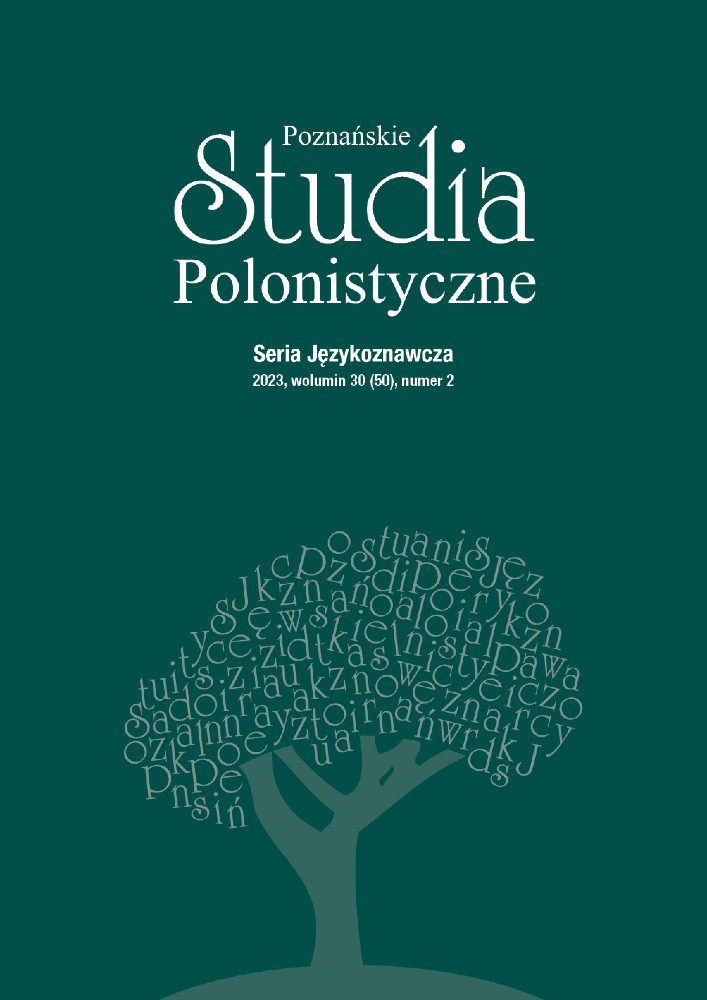Abstract
The aim of the paper is to present and discuss the portrayal of the COVID-19 pandemic in the media. Our primary focus is on Polish press articles, supplemented by occasional references to international sources. The analysis reveals that, much like in previous pandemics, the media narrative around COVID-19 is heavily metaphorical, aiming to simplify the understanding of this unfamiliar event. The most common metaphors involve war and battle, which have sparked controversy and significant criticism for their militaristic connotations. Our paper also examines alternative representations of the pandemic, such as natural disasters (with the fire metaphor being particularly apt), sports (including football, mountain climbing, and marathons), and other innovative comparisons (comparing the pandemic to an animal, driving a car, etc.).
References
Balsonaro J. (20 April 2020), Brazil’s Balsonaro joins protest against coronavirus restrictions. https://www.aljazeera.com/news/2020/4/20/brazils-bolsonaro-joins-protest-against-coronavirus-restrictions [accessed: 10 May 2021].
Biden J. (26 November 2020), Biden Thanksgiving speech: We’re at war with the virus, not each other. https://www.bbc.com/news/election-us-2020-55078066 [accessed: 10 May 2021].
Cuomo A. (26 March 26 2020), Governor Cuomo announces significant donations to help increase the state’s supply capacity amid ongoing COVID-19 pandemic. https://www.governor.ny.gov/news/governor-cuomo-announces-significant-donations-help-increase-states-supply-capacity-amid [accessed: 10 May 2021].
Ghebreyesus T.A. (11 March 2020), WHO Director-General’s opening remarks at the media briefing on COVID-19–23 March 2020; https://www.who.int/director-general/speeches/detail/who-director-general-s-opening-remarks-at-the-media-briefing-on-covid-19---23-march-2020 [accessed: 20 March 2020].
Johnson B. (17 March 17 2020), “This enemy can be deadly”: Boris Johnson invokes wartime language. https://www.theguardian.com/world/2020/mar/17/enemy-deadly-boris-johnson-invokes-wartime-language-coronavirus [accessed: 12 April 2021].
Kaszuba-Janus M. (2020): Belvedere Catering dostarcza posiłki dla służby zdrowia, https://www.horecanet.pl/belvedere-catering-dostarcza-posilki-dla-sluzby-zdrowia/ [accessed: 15 February 2021].
Macron E. (16 March 2020), Coronavirus: we are at war – Macron. https://www.bbc.com/news/av/51917380 [accessed: 10 May 2021].
Morrison S. (8 April 2020): ‘We will never surrender’: Scott Morrison channels Winston Churchill as he says Australia is ‘under attack’ from coronavirus – and warns the ‘battle’ may last longer than 6 months, https://www.dailymail.co.uk/news/article-8198577/We-never-surrender-Scott-Morrison-channels-Winston-Churchill.html [accessed: 10 May 2021].
Musu C. (2020): War metaphors used for COVID-19 are compelling but also dangerous. https://theconversation.com/war-metaphors-used-for-covid-19-are-compelling-but-also-dangerous-135406 [accessed: 10 May 2021].
Nerlich B. (2020): Metaphors in the time of coronavirus, https://blogs.nottingham.ac.uk/makingsciencepublic/2020/03/17/metaphors-in-the-time-of coronavirus/ [accessed: 12 April 2021].
Sánchez P. (12 April 2020): Sánchez advierte de que llega la “ola más dura”y pide fortaleza y unidad. https://elpais.com/espana/2020-03-21/sanchez-advierte-de-que-llega-la-ola-mas-duray-pide-fortaleza-y-unidad.html [accessed: 10 May 2021].
Selwant K. (2020): Pandemia jak maraton. Wywiad z psychologiem sportowym. https://zdrowie.radiozet.pl/Psychologia/ABC-psychologii/Pandemia-jak-maraton.-Wywiad-z-psychologiem-sportowym [accessed: 15 August 2022].
Steinmeier F.-W. (11 April 2020): Pandemic Not War But ‘Test Of Humanity’: German President, https://www.barrons.com/news/pandemic-not-war-but-test-of-humanity-german-president-01586617505 [accessed: 10 May 2021].
Triggle N. (2020): Coronavirus: Is the NHS ready for the surge in cases? https://www.bbc.co.uk/news/health-51714498 [accessed: 12 April 2021].
Dunaj B. (ed.) (2001), Słownik współczesnego języka polskiego. Vol. 1–2. Warszawa.
Baehr P., (2006), Battle Language and the Hong Kong SARS Outbreak of 2003. “Economy and Society” vol. 35, no.1, p. 42–64. DOI: https://doi.org/10.1080/03085140500465840
Bryła W., Bryła-Cruz A. (2021), Retoryka “okołokoronawirusowa.” Szkice językowo-kulturowe. Lublin.
Craig D. (2020), Pandemic and its Metaphors: Sontag Revisited in the Covid-19 Era. “European Journal of Cultural Studies” vol. 23, no. 6, p. 1025–1032. DOI: https://doi.org/10.1177/1367549420938403
Fleck L. (1979), Genesis and Development of a Scientific Fact. Bradley and Trenn trans., Chicago.
Honigsbaum M. (2013), Regulating the 1918–19 Pandemic: Flu, Stoicism and the Northcliffe Press. “Medical History” vol. 57, no. 2, p. 165–185. DOI: https://doi.org/10.1017/mdh.2012.101
Nerlich B., Jaspal R. (2021), Social representations of ‘social distancing’ in response to Covid-19 in the UK media. “Current Sociology,” p. 1–18. DOI: https://doi.org/10.1177/0011392121990030
Rosalak M. (2001): Wielkie zarazy ludzkości. Warszawa.
Semino E. (2021), Not Soldiers but Fire-fighters – Metaphors and Covid-19. “Health Communication” vol. 36, no. 1, p. 50–58. DOI: https://doi.org/10.1080/10410236.2020.1844989
Sontag S. (1999), Choroba jako metafora. AIDS i jego metafory. Warszawa.
Sznajderman M. (1994), Zaraza. Mitologia dżumy, cholery i AIDS. Warszawa.
License
Copyright (c) 2023 Władysława Bryła, Agnieszka Bryła-Cruz

This work is licensed under a Creative Commons Attribution-NoDerivatives 4.0 International License.
Authors
The Author declares that they are entitled to personal and property (material) copyrights to their work published in “Poznańskie Studia Polonistyczne. Seria Językoznawcza”, and that these rights are not limited by the terms of Author’s agreement. The Author warrants the originality, authorship, and sole ownership of all rights to the Work, and affirms that they have the right to grant all kinds of licenses hereinabove without infringing on the intellectual property rights of any third party, including personal rights.
The Author(s) retains copyright to their article and the right to freely dispose of the work, granting Adam Mickiewicz University in Poznań a non-exclusive, royalty-free licence under the Attribution-NoDerivatives 4.0 International (CC BY-ND 4.0) Creative Commons licence to use the Work without territorial restrictions for an indefinite period in the fields of use designated in the Author’s agreement.
Users
Interested Internet users are entitled to use works published in „Poznańskie Studia Polonistyczne. Seria Językoznawcza” since 2016 under the following conditions:
- attribution - obligation to provide, together with the distributed work, information about the authorship, title, source (link to the original work, DOI) and the license itself.
- no derivatives - the work must be preserved in its original form, without the author's consent it is not possible to distribute the modified work, such as translations, publications, etc.
Copyrights are reserved for all texts published before 2016.
Other
Adam Mickiewicz University in Poznań retains the right to the journal as a whole (including its layout, graphic design, title, cover design, logo and more).

